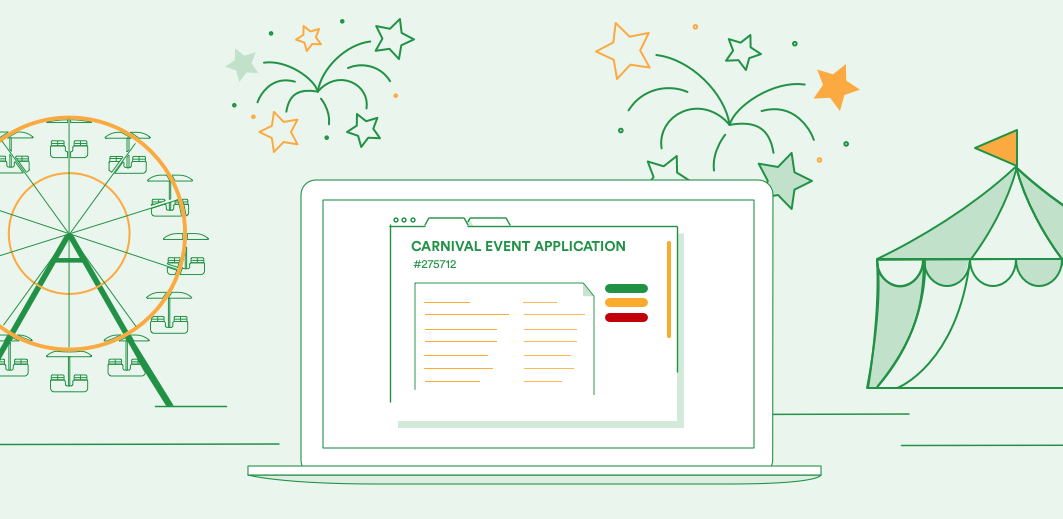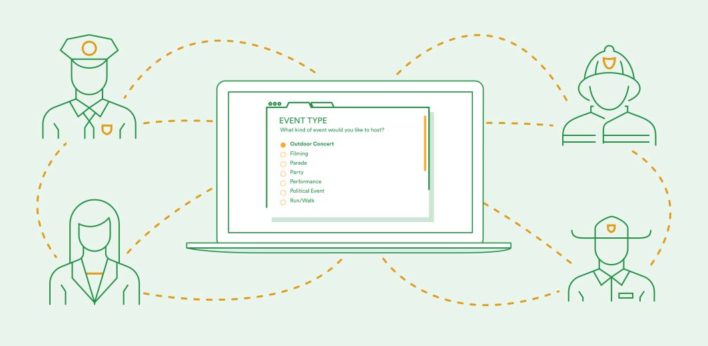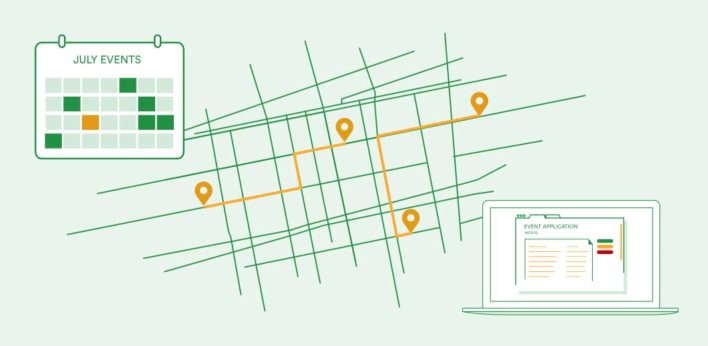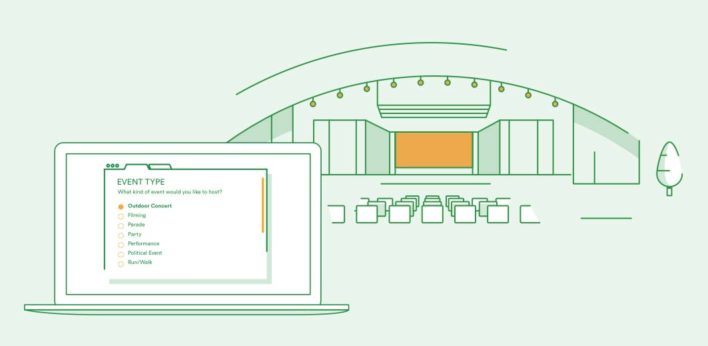With its stunning ski slopes, vibrant culture and nightlife, a booming economy, and high quality of life, it’s easy to see why Salt Lake City is on the rise. In fact, the greater metro area has seen its population grow 30% over the past 20 years, and the City has realized more than $1 billion in capital investments within the past decade.
And with that growth comes a whole lot more demand for housing, business development — and special events. From music festivals, block parties, and marathons, to its long-standing popularity as a scenic backdrop for film and television production, the City faces no shortage of interest in people wanting to host a wide range of events within its city lines.
In a quest to scale its permitting operations to meet that growing demand, Salt Lake City turned to OpenCounter to streamline the application process for event organizers, expand its engagement — which already included permit-discovery portals for zoning and business and residential permitting — and build a digital permit solution that would bolster its position as an event-friendly city — and reduce some of the burden on its municipal teams.
The Challenge
From tourism growth to new revenue, special events provide cities with many benefits, but they also mean a lot of work for City Hall. And in Salt Lake City, Ryen Schlegel, the City’s special event permit manager, was feeling the strain.
“As Salt Lake City grows in population, the number of special event permits has grown tremendously along with it,” Schlegel said. “In 2019 alone, we approved more than 400 permits for special events, film production shoots, and demonstrations. Each one of those permits represents hours spent not only answering applicants’ questions and creating conditional checklists but also coordinating review with my City Hall colleagues who are also part of the process — about 25 people across 12 different departments.”
That’s a tall order, indeed — especially without a centralized location for receiving, reviewing, and approving new applications or orchestrating cross-departmental review at such a large scale. The City’s Event Review Committee had done a great job using existing technologies to improve the applicant experience. But the process still meant staff needed to spend a lot of their time educating applicants on the intricacies of permitting in Salt Lake City and ensuring they met all requirements — even if it meant long hours, repetitive data entry, and little time to work on larger projects.
For Schlegel, maintaining the high levels of customer service his constituents have come to enjoy would be even more challenging given the ever-increasing demand he was seeing.
“Our goal has always been to create awareness of our special events permitting process to make it easier for organizers to apply and to position Salt Lake City as a friendly place to hold events that enrich the lives of everyone in our community,” he told us.
Event organizers over the years had repeatedly commented on the City’s antiquated and highly manual application process that was both time-consuming and difficult to navigate. Recognizing that changes were needed, the City embarked on a months-long engagement project with special event permit applicants and event organizers. The City distributed a survey to previous special event permit applicants and held focus groups with organizers of large annual events.
In that survey, 50% of respondents indicated they would like to see changes to the special events permitting process, including a technology update, and about 45% of respondents experienced major barriers while completing the application process, primarily noting the confusing process. The outdated technology system and manual application process was a common theme in all of the focus groups. Armed with strong feedback from their users, Salt Lake City turned to OpenCounter to modernize and streamline the special event permit process.
The Solution
Building on the success Salt Lake City saw in 2017 after their launch of OpenCounter’s ZoningCheck, Business Portal, and Residential Portal solutions — which, in 2019 alone, saved staff more than 2,100 hours and helped the city achieve a 95% self-service rate for the nearly 7,000 inquiries received — OpenCounter got down to work on this new chapter of our engagement.
Through close collaboration with Schlegel and the Event Review Committee members, OpenCounter’s team of in-house public-sector experts began translating the City’s special event requirements into a system every applicant could easily understand. One that would provide them with a single point of entry for navigating the City’s five special event permit types and the more than 40 total requirements that could be triggered. And for City Hall, having a centralized dashboard would be critical to keeping that endless wave of review and approvals moving.
The Outcome
Salt Lake City’s new Special Events Portal — a one-stop-shop for all things event permitting — delivers many significant wins for both city staff and event organizers alike.
With OpenCounter, special event permit applicants will be able to apply for permits in one accessible, centralized system that is entirely digital, streamlining the process from application to event clean-up.
Salt Lake City Mayor Erin Mendenhall comments, “Salt Lake City is known throughout the state for its annual large-scale cultural and artistic festivals and celebrations. We’re also home to many more smaller-scale gatherings that build strong ties at the neighborhood level. Moving our special event permitting process to OpenCounter will make organizing events big and small easier and more predictable for our community organizers. I’m excited to see what new traditions and celebrations this shift will make possible for our City.”
Permit discovery made simple
With OpenCounter, it’s easy for applicants to understand which permits they need for their events, the specific requirements for each, and what those permits will cost — all without making a single call or sending an email to City Hall. Best of all: They can do this at any time and from any device.
Modern tools for modern government
No more carbon copy forms or shuffling applications across City Hall. Our Special Events Portal digitizes every part of the permitting process — from one-click event selection to scheduling, route building, payment, and issuance inside the portal.
Now, after months of discussion, strategizing, testing, and implementation, it’s time for Salt Lake City to put its new special event permitting system to use. And Schlegel couldn’t be more excited.
“I can’t wait to see how OpenCounter’s portal improves the permitting experience for organizers and how much it will minimize processing times on the city’s end. For the applicant to apply and move directly into working on the conditions in a self-service model, rather than having to wait for us to manually do it, will accelerate the entire process and alleviate our biggest pressure points.”



